Plan A (Thesis MS)
Nine courses + thesis
Complete coursework and write/defend an MS thesis featuring substantial original research results.
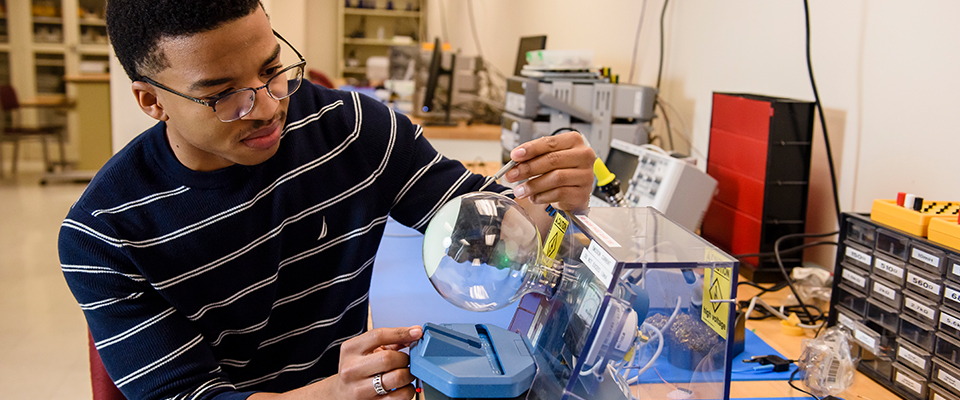
Electrical and computer engineering is an incredibly broad field that equips students to develop emerging technologies that will help address some of the world’s biggest challenges in energy, health care, and transportation. Our department offers students a truly interdisciplinary program with strong ties to computer engineering and applied physics, mirroring the interdisciplinarity that electrical engineers find in industry and research.
Prepare yourself for this work by joining our department, which prides itself on both research and teaching. You’ll experience a unique environment where students work closely with expert faculty in state-of-the-art labs on research in fields such as computational imaging, computer architecture, embedded systems, information theory, machine learning and signal processing, physical electronics, photonics, quantum devices, very large-scale integration (VLSI), and wireless communication.
The basics at-a-glance
Earn your degree in 9-15 months by completing at least 12 credits according to one of the following plans:
Nine courses + thesis
Complete coursework and write/defend an MS thesis featuring substantial original research results.
Nine courses + research project
Complete coursework and a research project including a project report that contains results based on existing theory or techniques.
Complete 12 courses
Complete a total of 12 courses – nine courses in computer engineering, computer science, or electrical engineering (including six core electrical engineering courses) and three 400-level courses.
Students can choose from the following specializations, or create a custom program to gain exposure in any number of areas of interest.

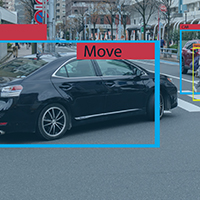






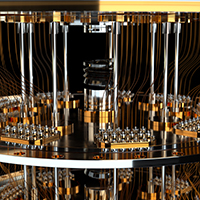


Round out your expertise through research experience and complementary minors
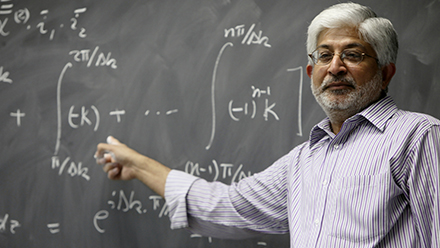
Many students in the program pursue independent research as a part of their degree, working with faculty on state-of-the-art equipment and backed by the considerable resources offered by a great university.
Our research spans a wide range of disciplines that are essential to the growing field of information technology. Research divisions include:

Students enrolled in full-time master’s programs can complement their study with a minor in one of the following areas:

Our faculty members oversee and participate in several research centers at Northwestern:
Where do we go from here?
Students who earn the master of science in electrical engineering gain a competitive edge over their peers, moving on to PhD programs or into career roles in fields such as system design and specification; university teaching and research; sales; cost analysis; management; component design, research, and development; and consulting, production, and quality control.
Also, our career advisers in Engineering Career Development and Northwestern Career Advancement assist students with career development and placement.
72% work in fields such as design and management; micro-electronics and semiconductors; application specific hardware and software systems; and computer-aided design tools for digital, aerospace, defense, and networked systems.
28% pursue a PhD at prestigious universities throughout the world.
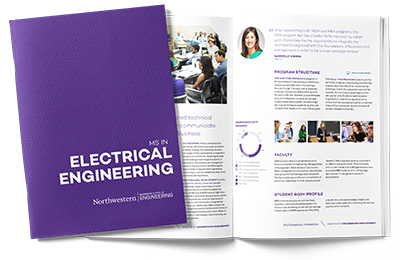
Request a customized program guide about the master of science in electrical engineering.